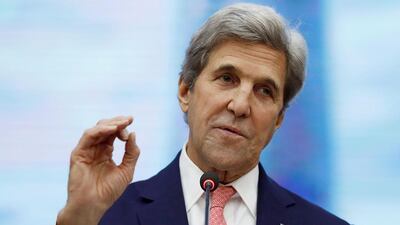The final weeks of a presidential administration in the United States are normally a period of reflection. There are the presidential pardons to be granted and perhaps a final piece of critical legislation to be pushed forward. Over the past three decades, there has also been a last-minute push to forge some sort of impossible peace between Israel and Palestine.
The administration of Barack Obama is no different in this regard. Mr Obama’s secretary of state John Kerry, who was particularly passionate about Israel-Palestinian peace, delivered damning remarks last month on the state of the conflict. In what was seen as a last-ditch effort, Mr Kerry spoke of Israel’s intransigence and unwillingness to curb settlement activity in unreserved language. For close observers of the conflict, however, Mr Kerry’s remarks were too little, too late. This analysis extends to France’s attempts to kick-start the peace process with an international conference that began yesterday.
While the Palestinians have welcomed France’s attempts to revive negotiations, few are under the illusion that any concrete steps will be adopted at the conference or that Israel will pay that much heed to discussions about the two-state solution. With Donald Trump set to enter the White House on Friday, Tel Aviv is betting on a friendly administration that will support all of its efforts to consolidate its occupation and even move the US embassy to Jerusalem. That Israelis even accept such developments to become a reality in the next four years is clear evidence that the two-state solution that the international community has embraced for the past two decades is dead. It is not dying nor can it be saved.
What will replace the two-state solution framework as laid out by the Oslo Accords is unclear, but the indications from the Trump administration are worrisome. The status of Jerusalem, in particular, is an issue that affects the Middle East and the Muslim world as a whole and any decision to move the US embassy to the city could have dire consequences.
One thing is clear though: if Israel is emboldened to continue building settlements and deepen its control over Palestinian life, it will be increasingly difficult for European countries such as France to ignore civil society calls to boycott Tel Aviv. Once momentum gathers for a boycott, as we have seen in similar conflicts, it has the power to radically change the facts on the ground.

